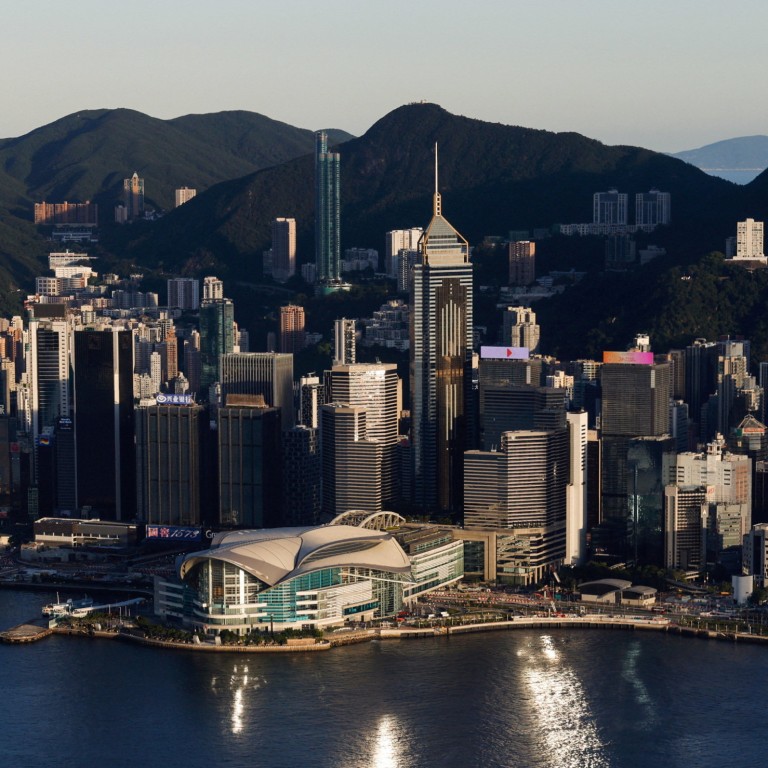
Mainland China’s reopening won’t solve all Hong Kong’s property market problems
- The outlook has no doubt improved, particularly in sectors related to tourism and the luxury residential market, but the city’s challenges that predate the pandemic remain
- A chronic shortage of affordable housing and a stalemate in the investment market are just two issues that need addressing
Having suffered a succession of domestic and external shocks over the past several years, Hong Kong’s real estate industry is now firmly on the road to recovery. The sudden reopening of mainland China’s economy has served as the crucial catalyst for a major improvement in sentiment.
Just a cursory glance at some of the performance indicators in the residential and commercial markets since Beijing scrapped its zero-Covid policy shows how the outlook has brightened.
Since mid-December, the Centa-City Leading Index, a gauge of secondary home values, has risen 7.7 per cent, having fallen 18.2 per cent over the course of the preceding 16 months.
In the commercial market, gross leasing volumes in the hard-hit retail sector in the first quarter of this year were more than double their quarterly levels in 2018 – prior to the anti-government protests – while net take-up of office space was positive for the third straight quarter, data from CBRE shows.
Tellingly, more than half the investment transactions last quarter were in the retail sector, the biggest beneficiary of the resumption of cross-border travel along with hotels. “Hong Kong was almost a no-go area in the last few years. Now, I feel like I’m a tourist guide,” said Tom Gaffney, regional managing director at CBRE in Hong Kong.
The fillip provided by the unsealing of the border with the mainland is palpable. In the residential market, the sharpest increase in sales in January and February was in the luxury segment of the primary market – properties sold for HK$19.2 million (US$2.5 million) or more – which accounted for 15 per cent of total transactions, compared with 6 per cent for the whole of last year, data from JPMorgan shows.
Indeed, the number of sales above HK$50 million in the first month after the borders reopened rose to 35, compared with 21 in the month prior to the reopening.

With over 1,200 rooms and 3,400 square metres of indoor and outdoor meeting space, the hotel – whose sale was triggered by the financial woes of its owner, Chinese developer Shimao Group Holdings – is the second largest in the city and is expected to attract bids from both institutional and private investors.
“The institutional-grade hotel market in Hong Kong is tightly held, which makes the sale even more significant,” said Jonathan Law, a vice-president in the Hotels & Hospitality Group at JLL in Hong Kong, which is handling the sale.
Yet, mainland China’s reopening is not a panacea for the problems facing Hong Kong’s property market, many of which predate the pandemic or have little to do with the policies pursued by Beijing.
First, while house prices may have fallen sharply since mid-2021, affordability remains staggeringly stretched. Hong Kong’s home ownership rate is stuck at a deplorable 50 per cent, far below the 60-70 per cent level in advanced economies.
A report by S&P Global Ratings published on April 13 noted that, while, on average, 53,000 married couples registered annually between 2005 and 2019, the average annual supply of private and public housing was below 29,000 units. Not only did this help drive up prices, demand for public housing moved in tandem with prices, exacerbating the decline in affordability.
In the commercial sector, a supply shock of a different kind is taking place. In addition to contending with a persistent decline in prime rents and a doubling in the amount of vacant space since the start of the pandemic, to nearly 13 million square feet, Hong Kong’s office market faces a further 2.5 million sq ft of new supply this year, according to CBRE, putting more pressure on rents and vacancies.
Reform the market for subsidised homes to give young people hope
Other challenges include increased competition for the city’s retail market – mainland China’s share of global luxury spending is set to increase further, partly due to duty-free shopping and digitisation – and the heightened risk of a global recession.
A bigger concern, however, is a stalemate in the investment market. Many of Hong Kong’s large landlords are family-owned conglomerates with relatively strong balance sheets. Less sensitive to the surge in borrowing costs, and even more unlikely to sell their prime properties at a discount given the brighter outlook, vendors are in a stand-off with buyers, most of whom are waiting for prices to adjust or are searching for distressed assets.
“There’s a lack of quality stock available for sale. There are lots of wealthy landlords holding on to their properties,” said C.K. Lau, managing director at Colliers in Hong Kong.
Hong Kong is undeniably the biggest beneficiary of mainland China’s reopening. Yet, its property market continues to climb a wall of worry. Even if these worries have diminished, the wall remains steep.
Nicholas Spiro is a partner at Lauressa Advisory


